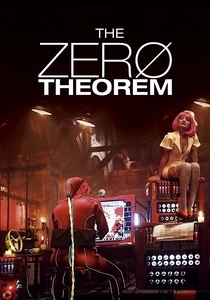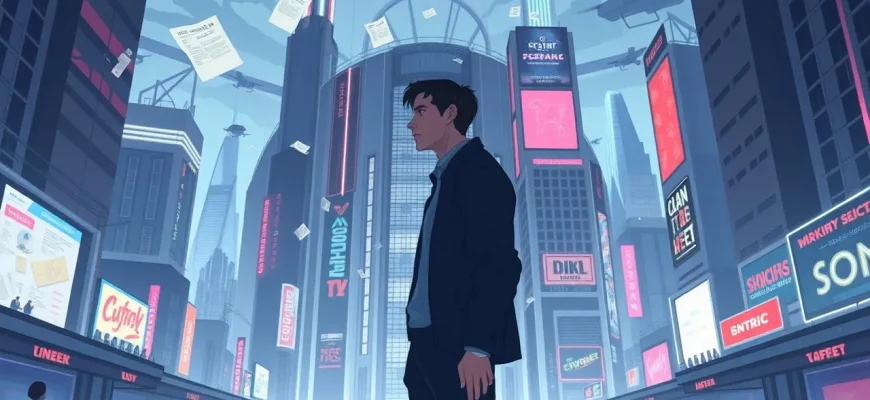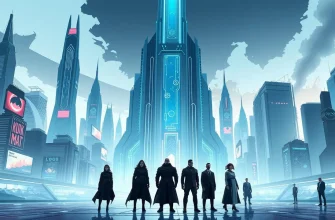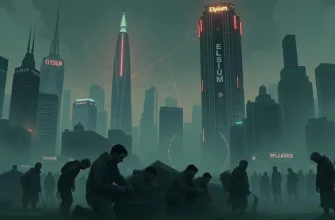In the realm of science fiction, bureaucracy often serves as a backdrop to explore themes of control, efficiency, and the human condition. These films not only entertain but also provoke thought about the systems that govern our lives, making them a fascinating watch for anyone intrigued by the interplay between technology, governance, and individual freedom.

THX 1138 (1971)
Description: In a future where emotions are suppressed through drugs, citizens are identified by numbers, and a man named THX 1138 rebels against the oppressive bureaucratic state that controls every aspect of life.
Fact: This was George Lucas's first feature film, and the title "THX 1138" was his student ID number at USC. The film was initially a student project before being expanded into a full-length movie.
 Watch Now
Watch Now 
A Clockwork Orange (1971)
Description: This film delves into the themes of state control and the bureaucratic manipulation of human behavior, as a young delinquent is subjected to an experimental aversion therapy to curb his violent tendencies.
Fact: Stanley Kubrick withdrew the film from UK cinemas due to copycat violence, and it was not re-released there until after his death in
 Watch Now
Watch Now 
Brazil (1985)
Description: In a dystopian future, a low-level bureaucrat named Sam Lowry becomes entangled in a bureaucratic nightmare after a clerical error leads to an innocent man's arrest. The film satirizes the oppressive nature of bureaucratic systems.
Fact: The film's title was inspired by the song "Aquarela do Brasil," reflecting the protagonist's dream of escaping to a better world. Terry Gilliam, the director, had numerous conflicts with Universal Studios over the film's length and content.
 Watch Now
Watch Now 
Dark City (1998)
Description: In a city where time stands still and memories are manipulated by a group of beings known as the Strangers, a man must uncover the truth about his identity and the bureaucratic control over reality.
Fact: The film's visual style was heavily influenced by German Expressionism, particularly Fritz Lang's "Metropolis," to emphasize the surreal and controlled environment.
 Watch Now
Watch Now 
Gattaca (1997)
Description: In a future where genetic engineering determines one's social status, a naturally conceived man must navigate through a highly bureaucratic society to achieve his dream of space travel.
Fact: The film's title is based on the four nitrogenous bases of DNA: guanine, adenine, thymine, and cytosine.
 Watch Now
Watch Now 
The Matrix (1999)
Description: While not directly about bureaucracy, the Matrix itself is a complex system of control and regulation, where humans are unknowingly enslaved by artificial intelligence, highlighting themes of bureaucratic control over individual lives.
Fact: The idea for the Matrix was inspired by "Neuromancer" by William Gibson, and the film's concept of reality was influenced by various philosophical ideas, including Plato's Allegory of the Cave.
 Watch Now
Watch Now 
Equilibrium (2002)
Description: In a totalitarian regime where emotions are outlawed, a high-ranking official begins to question the system after missing his dose of emotion-suppressing drugs, revealing the bureaucratic control over personal freedoms.
Fact: The film's setting was inspired by the architecture of fascist regimes, particularly Nazi Germany, to visually convey the oppressive nature of the regime.
 Watch Now
Watch Now 
The Island (2005)
Description: In a seemingly utopian facility, clones are raised to serve as organ donors for their human counterparts, highlighting the bureaucratic control over life and death decisions.
Fact: The film was inspired by several sources, including Aldous Huxley's "Brave New World" and the 1979 film "Parts: The Clonus Horror."
 Watch Now
Watch Now 
The Adjustment Bureau (2011)
Description: A man discovers that his life is being manipulated by a mysterious organization known as The Adjustment Bureau, which controls human fate through bureaucratic means, exploring themes of free will versus predestination.
Fact: The film is loosely based on Philip K. Dick's short story "Adjustment Team," and the Bureau's headquarters was filmed in the New York Public Library.
 Watch Now
Watch Now 
The Zero Theorem (2013)
Description: A reclusive computer genius works on a project to prove the meaninglessness of life, under the watchful eye of a bureaucratic entity, exploring themes of existentialism and control.
Fact: The film was directed by Terry Gilliam, who also directed "Brazil," and it shares similar themes of dystopian bureaucracy.
 Watch Now
Watch Now 








